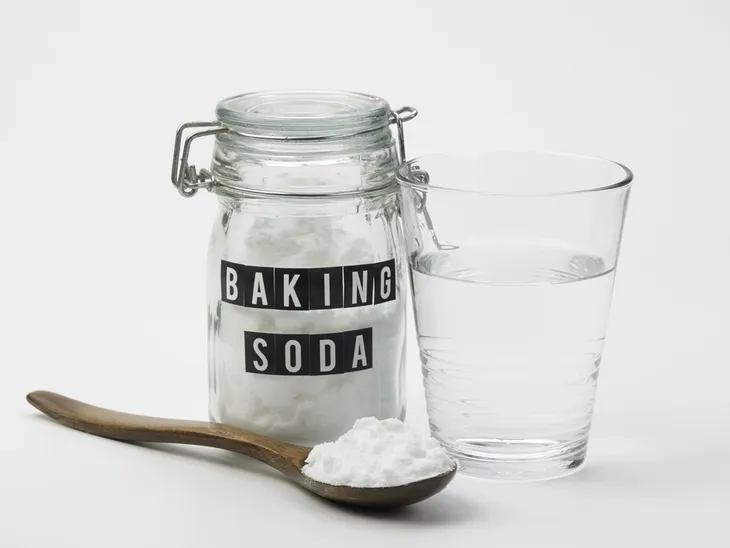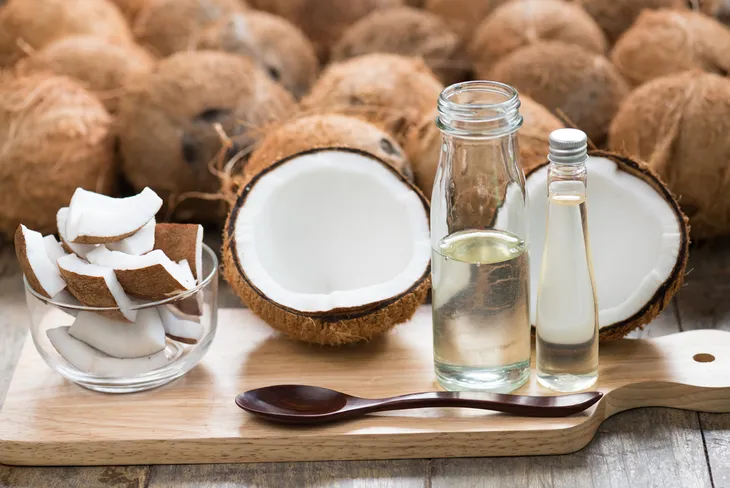There are many solutions for a sore throat out there, from over-the-counter products that numb your throat to antibiotics if you have a case of strep throat. However, if you don’t want to make a trip to the doctor (or the store), and your sore throat isn’t severe (like strep can be), then you might want to see if a remedy is already right at home.
There are number of sore throat remedies that can provide temporary relief from the soreness of an angry throat. Some work on their own or in combination with other ingredients, but they’re generally safe for everyone (with the exception of some). Here are 13 to try…
Honey
This naturally-made product is not only great as a sugar alternative for your coffee or tea, it can also help calm down an inflamed throat. Not only does it have the ability to fight infection and provide pain relief on its own, honey can also make other (less palatable) remedies go down easier, notes Medical News Today.
The source explains that honey can be combined with warm water and apple cider vinegar, which we’ll also get to. There are a couple of warnings attached to honey, however: it shouldn’t be given to infants because they can’t handle the spores sometimes found in honey, and those controlling their sugar and carb intake may want to look elsewhere because honey contains much of both.
Chamomile Tea
Often used to help people relax, chamomile can also help your sore throat take a break, notes Healthline. “It has long been used for medicinal purposes, like soothing a sore throat. It’s often used for its anti-inflammatory, antioxidant, and astringent properties,” notes the source.
It adds that some study reviews have shown that just inhaling chamomile steam can relieve cold symptoms, which include a sore throat. “It can also stimulate the immune system to help your body fight off the infection that caused your sore throat in the first place,” says the source.
Salt Water
There’s not a much simpler solution than this – literally. All it takes is running water and some salt, which surely you have some of in the kitchen. Best Health magazine says salt and water “has been used as a gargle for centuries because it works so well: It draws moisture from the mucus membranes (thereby diluting mucus) and helps cleanse the throat of phlegm”.
The source says to dissolve 0.5-teaspoons of salt into 1-cup of warm water and gargle it, ideally, three or four times a day or until your throat feels better. Don’t swallow the mixture; spit it out after gargling. And if your throat is really sore, the mixture may burn. So use your best judgment if it’s right for you.
Chicken Soup
Turns out this comfort food is not only for the soul – it’s also for your sore throat. While it’s often used to nurse a cold, it can also help alleviate related symptoms such as a sore throat, according to Health.com.
The key is the sodium in the broth that may contain anti-inflammatory properties, notes the source. Its soft texture also is a good way to stay nourished (and get the nutrients you need to fight off infections) when other foods feel like swallowing razors. The broth also contains essential fatty acids and protein, both needed to get healthy, fast.
Marshmallow Roos
Marshmallow root and modern-day marshmallows are two very different things that did have similarities long ago. The marshmallows you find in the grocery store are full of sugar and preservatives. Whereas, marshmallow root is part of a plant that may help your sore throat. You can find marshmallow root in the form of teas, lozenges, and supplements.
According to Healthline, “A 2019 study found that marshmallow root can offer quick relief for symptoms related to respiratory conditions. This is because marshmallow root can help build a protective coat in your mouth and throat that relieves irritation and swelling. Marshmallow root can also reduce dry cough symptoms.” Just remember the FDA does not regulate supplements so use caution and talk to your doctor if you have any questions.
Apple Cider Vinegar
This natural health tonic makes it into so many lists, because of its healing properties that includes soothing a scratchy throat. MedicalNewsToday.com says that while apple cider vinegar has been a “folk medicine” remedy for years, it has an active ingredient called acetic acid that fights bacteria. Add 1-tablespoon of this vinegar to 1-cup of warm water and drink it down.
Going back to Ancient Greece, apple cider vinegar was combined with honey to create something called oxymel that was used to treat the flu, coughs and sore throats, adds the source. You can add 1-tablespoon of honey to the simple recipe above for added effectiveness.
Spices
What? Add spicy heat to your throat, which already feels like it’s on fire? It seems to work, at least according to GlobalHealingCenter.com, that says spices like cayenne, turmeric, ginger, and clove can actually help numb the pain (after the initial burn).
You don’t have to take a mouthful of cayenne pepper for this to work – in fact, please never try that. Instead, add 1-tablespoon of cayenne to 1/4-cup of warm water, mix it well, and gargle it. Turmeric gargles apparently work well too, without the “sting” of cayenne, it adds. Ginger tea is the best way to consume this spice for this particular purpose, while clove tea is another remedy that can calm inflammation of the throat, explains the source.
Sleep
You don’t need to find anything in your cupboards for this remedy; you just need a bed or couch and some peace. “Getting adequate sleep is vitally important in overcoming a sore throat,” notes DrAxe.com.
The source notes you should actually aim for 9 or 10-hours of sleep “until you begin to feel well”. Missing sleep is bad for your immunity overall – it explains that research has shown “sleep quality is thought to be an important predictor of immunity and susceptibility to the common cold”.
Baking Soda and Water
This remedy from the American Cancer Society is targeted at those receiving cancer treatment, but it can provide relief in other cases. Put 1-teaspoon of baking soda into 1-quart of water, and add 1-teaspoon of salt for added punch. “Gargle with the mixture to relieve a sore throat, but don’t swallow it,” it adds.
This remedy can also help provide relief from a sore mouth due to sores, adds the source. The solution will help ward off infections. Look for a natural baking soda product at the store (it may say natural sodium bicarbonate on the label, the purest state).
Lemon and Water
When life gives you a sore throat, you give it… lemons? Reader’s Digest notes that a mixture of lemon juice and water can help scare away a scratchy throat.
It says to mix 1-teaspoon of lemon juice in 1-cup of water to “help shrink swollen throat tissue and create a hostile (acidic) environment for viruses and bacteria.” Drinking lemon water on the regular is also reported to have several health benefits.
Hot Sauce
The last thing you probably want to pour into your tender throat is hot sauce, but Reader’s Digest says – go for it. After all, it’s (usually) made from real hot peppers, and some of these sauces actually taste good.
The key is the capsicum in hot peppers that helps to reduce inflammation while numbing the pain, adds the source. It suggests adding “a few shakes of hot sauce” to a cup of hot water for relief – it won’t feel good at first, but gargle with this solution every 15-minutes and apparently, you’ll warm up to it. Stay away from really hot sauces (using ghost peppers, for example) if you’re not accustomed to them.
Sage and Echinacea
Medical News Today explains that sage has medicinal uses, along with being handy for cooking. “It has been used to treat many inflammatory conditions, and controlled studies suggest it can help relieve throat pain,” it notes.
Meanwhile, echinacea is also used worldwide for its medicinal properties, and has been shown to fight off bacteria and reduce inflammation, adds the source. Making a “throat spray” involving these components requires 1-teaspoon of ground sage and 1-teaspoon of ground echinacea and 0.5-cups of water. Steep them in boiling water for 30-minutes and strain, putting it into a small spray bottle to use as needed.
Coconut Oil
The same source says coconut oil can do the trick, as its soothing properties “help lubricate the mucous membranes in the throat.” It also points to animal studies that suggest it may help fight infection and inflammation.
You can add a spoonful of coconut oil to hot tea or cocoa, a spoonful to your soup, or put a spoonful directly into your mouth “and allow it to melt down your throat,” suggests the source. Try to limit intake to 2-tablespoons per day (or it may become a laxative).
















